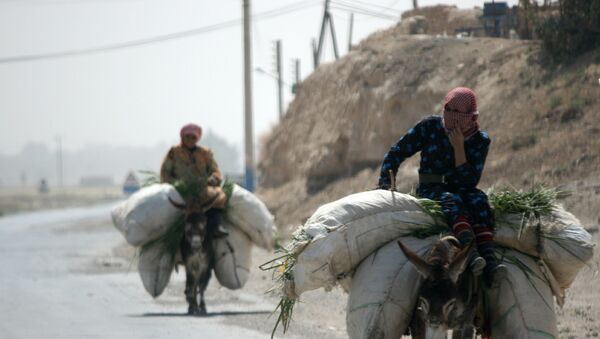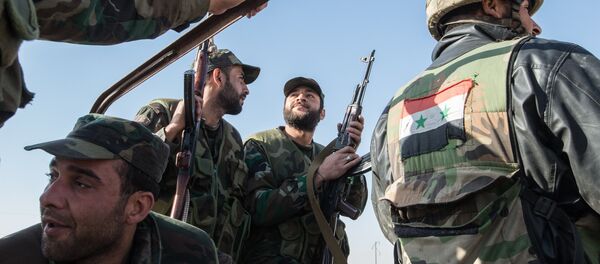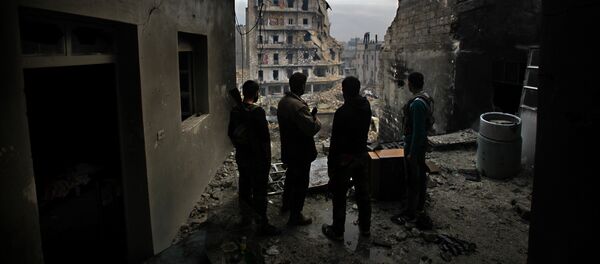WASHINGTON (Sputnik) — Russian-backed Syrian forces are driving on Raqqa, the Syrian capital of Daesh, while US-supported rebel forces, including Syrian Kurds, are attacking too.
With the Daesh tottering as the race to retake Raqqa unfolds, US policymakers face the dilemma of adapting their hitherto unsuccessful political strategy in Syria to try and establish a lasting peace.
"There must be a clear program for rebuilding Syria upfront now," Executive Intelligence Review (EIR) senior editor Jeff Steinberg said on Wednesday. "German officials have called for a one trillion euro Marshall Plan to rebuild Syria post-conflict.
Steinberg said the Obama administration had to learn to cooperate with other major powers and also work with the existing Syrian government to establish a lasting framework for peace.
China's One Belt, One Road program has already devised plans for the Middle East and Eastern Mediterranean to be a crucial transit point for trade and commerce between Asia, Europe and Africa, Steinberg pointed out.
"Syria is a natural hub for such an effort. [Chinese President] Xi Jinping visited Egypt, Saudi Arabia and Iran last year and brought these proposals, along with offers of Chinese capital investment, with him."
If the Syrian Army succeeds in liberating Raqqa and breaking the backbone of Daesh in the Raqqa province, Steinberg noted, the United States should recognize that Syria will remain a whole, integrated country.
"This would resolve some of Turkey's concerns about a potential for an independent Kurdistan, carved out of parts of Syria, Turkey, Iraq and Iran."
However, Saudi Arabia remained intent on installing a Sunni Salafist regime in Damascus, Steinberg warned, regardless of the outcome of the current battle.
"The Saudis must be told, in no uncertain terms, by a combination of the United States, Russia and China that no such jihadist state will be allowed."
The United States should accept Russia's proposal for joint military operations to completely wipe out the Daesh as well as the al-Nusra Front, Steinberg continued.
With the Daesh facing the prospect of losing its capital to the Syrian Army, Washington should also put Aish al-Sham and Jaish al-Islam on the UN terror list, despite their state sponsorship by Saudi Arabia and Turkey, Steinberg advised.
Syrian President Bashar Assad "is not going to leave and this issue should be dropped," Steinberg recommended.
"The state structures, including the Syrian Armed Forces must be fully retained intact. No reruns of the Iraq disaster of Paul Bremer [when Iraqi state structures were totally dismantled in 2003]."
Independent Institute Center on Peace and Liberty Director Ivan Eland agreed that the competition between the Syrian Army and US-backed groups to retake Raqqa revealed the existing Sunni-Shia divisions remained unresolved.
After Raqqa falls, Eland added, ethnic and sectarian strife needed to be eliminated in Syria as well as in Iraq to destroy the appeal of the Daesh to alienated Sunni Muslims.
"To get rid of ISIS [Daesh] permanently in these countries, the cause of that insurgency needs to be removed: ethno-sectarian strife," Eland observed.
If Syria and Iraq created Kurdish, Sunni and Shia self-governing areas, the Sunnis would no longer fear oppressive Shia governments and would then have an incentive to completely kick the Daesh out, Eland concluded.






